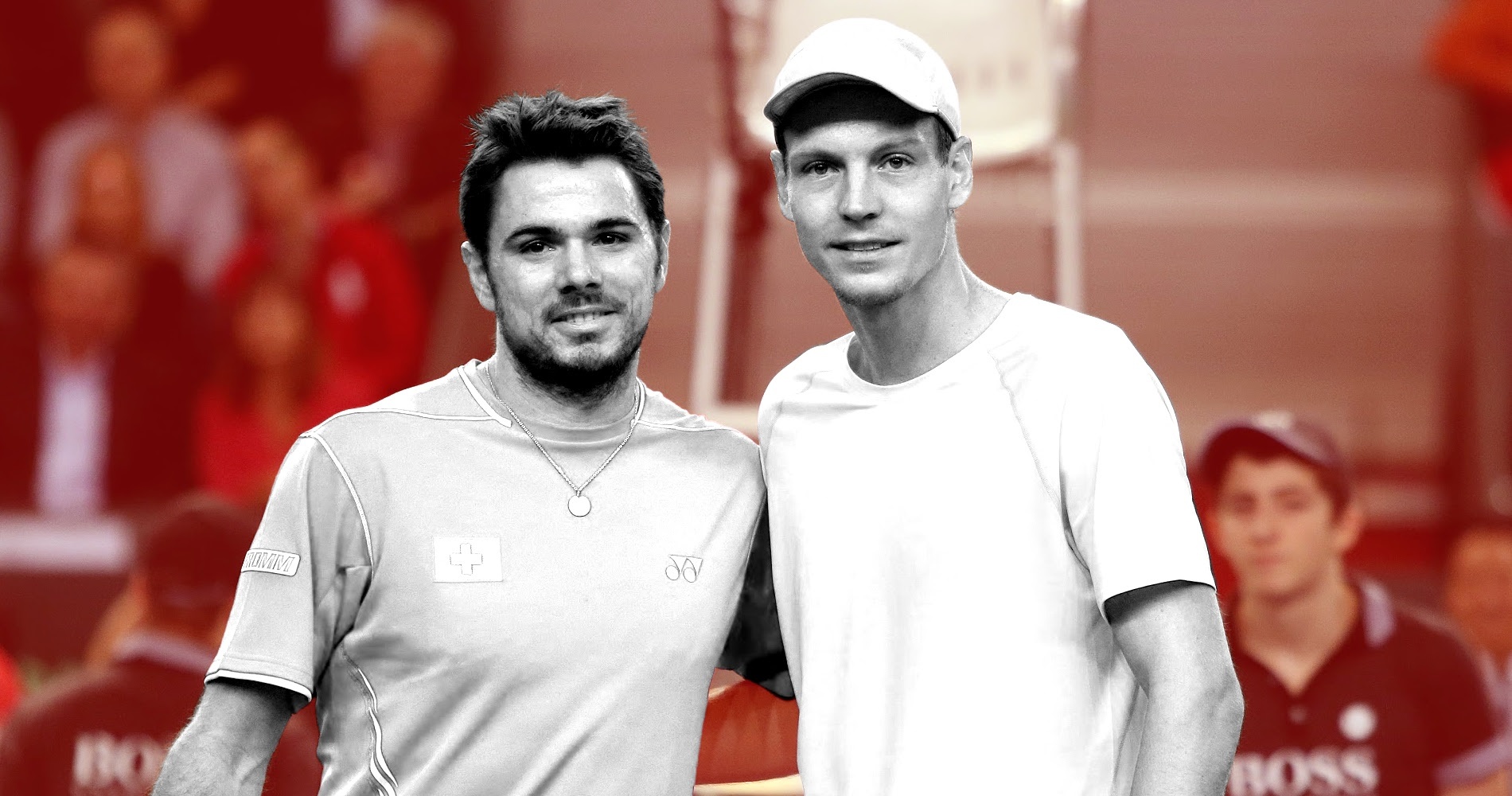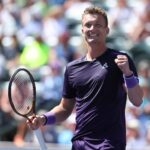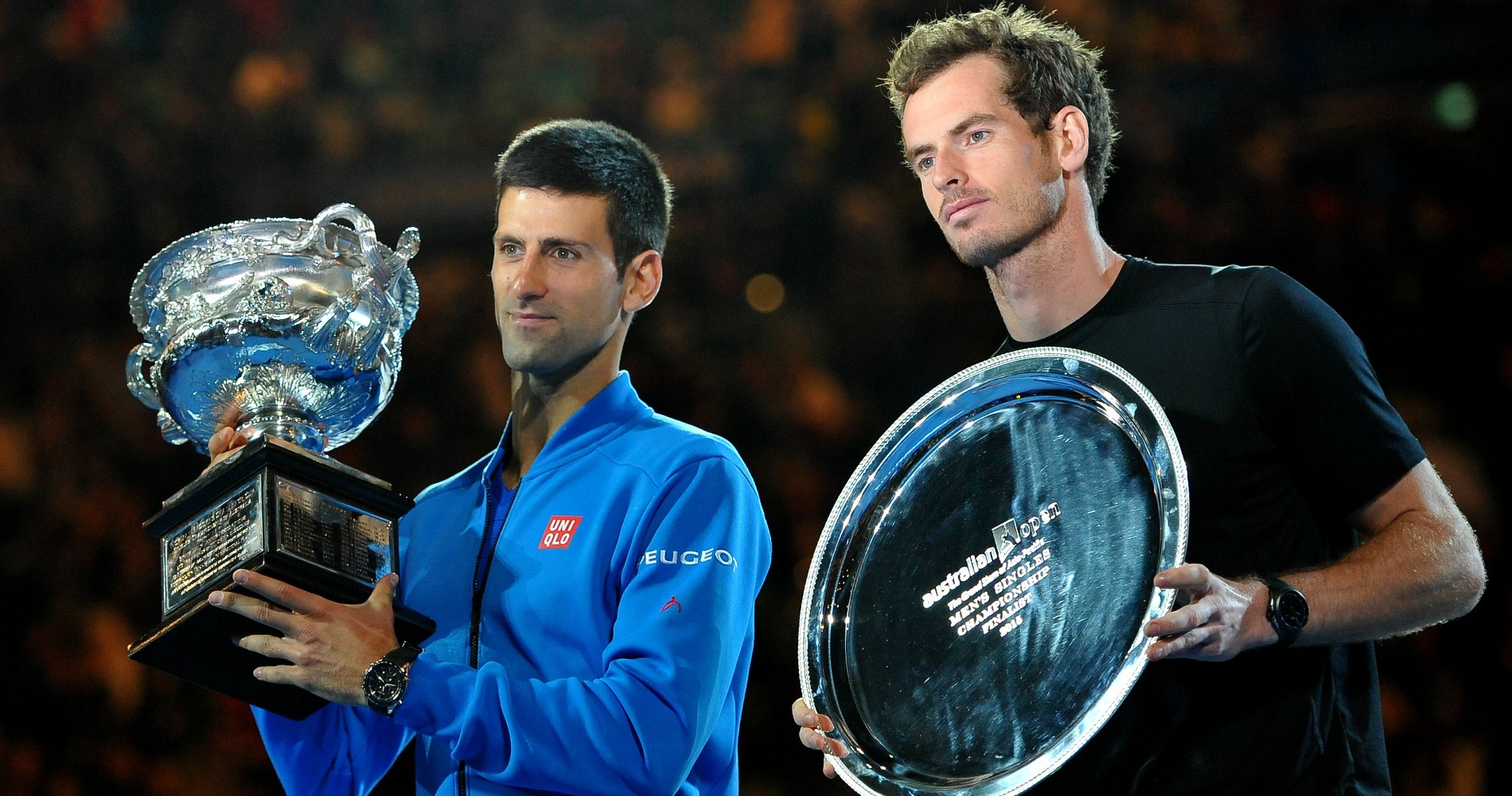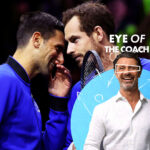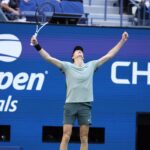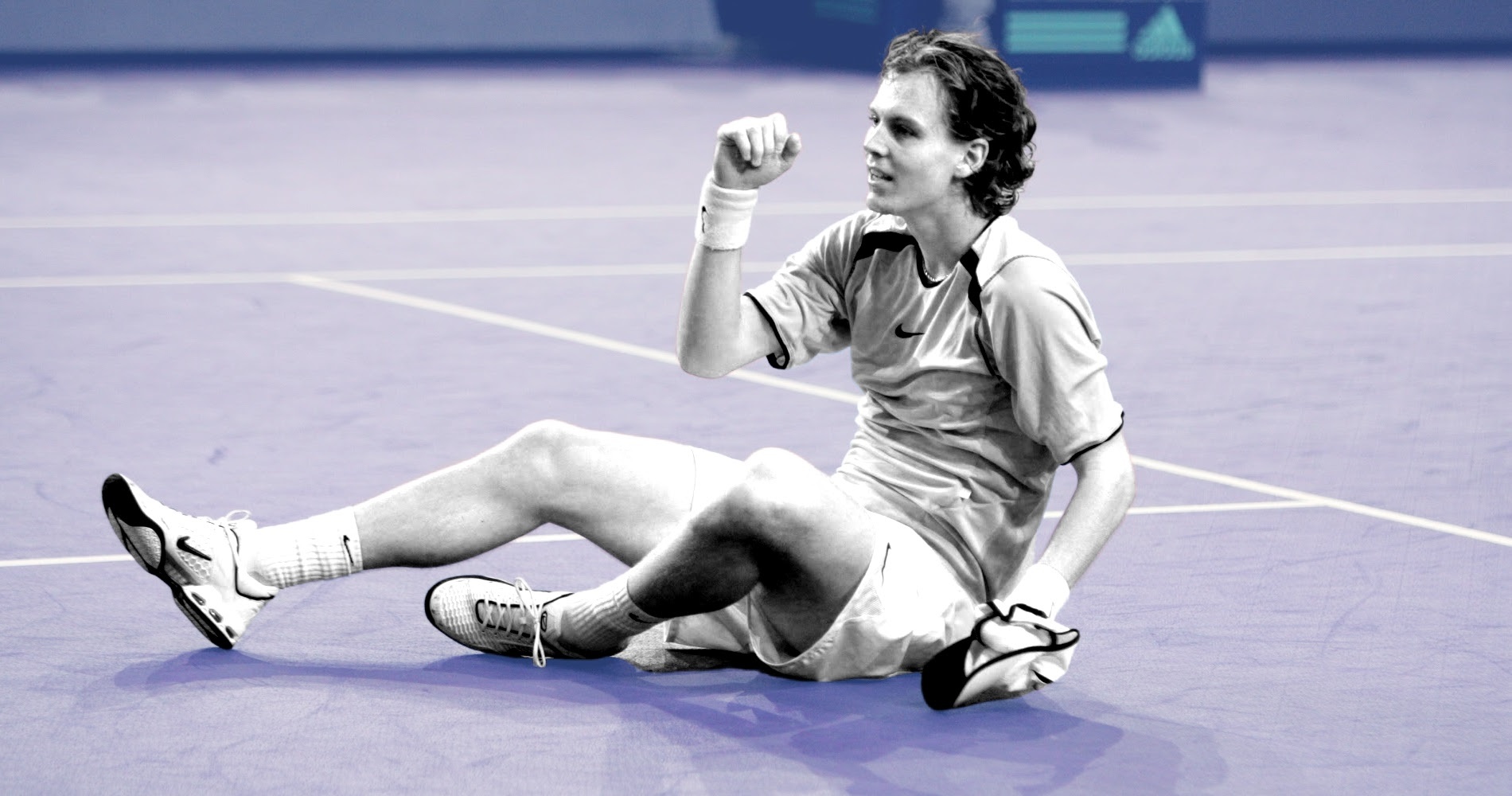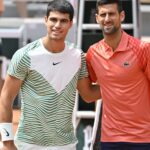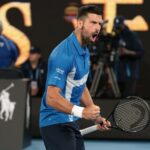“The Big 4 managed to get the maximum out of me,” says Tomas Berdych as he gets involved in tennis again
Tomas Berdych fought his whole career with the Big 4. Now a Davis Cup captain, four years after retiring, the Czech sees the other side of the story. He also shares his thoughts on today’s game and on that Djokovic-Murray association.
 Tomas Berdych (© Katerina Sulova/AP/SIPA)
Tomas Berdych (© Katerina Sulova/AP/SIPA)
Four years after retiring, one of the greatest players who never won a Grand Slam title has returned to tennis. Tomas Berdych won’t be playing again, no, but the Czech first accepted to join Jiri Lehecka’s team this season, and then this summer, he accepted to become Davis Cup captain. Berdych retired in 2019 due to a back injury and basically disappeared from the professional tennis environment. As his former infamous rivals are now joining him in retirement, Berdych has a unique view on the tennis chapter that is closing.
A top 10 fixture, World No.4 in 2015, Berdych was an outstanding player with easy power and striking skills that most players, even today, could only dream of. He played 52 straight Grand Slam events until the US Open 2016 and 64 straight Masters 1000 tournaments until Montreal 2017. He qualified for the ATP Finals six years in a row and clinched 13 titles, including the Masters 1000 in Paris in 2005, aged 20 and ranked 50. In 2010, he reached the final at Wimbledon after beating Roger Federer and Novak Djokovic, losing to Rafael Nadal in the final. The story of his career: a great among the greatest. Berdych, in his country, is also a Davis Cup legend as he won the trophy twice in 2012 and 2013, played the final in 2009, and holds a 50-17 record in singles and a 21-2 record in doubles. In the list of players that one is glad to have been able to watch playing, you find Tomas Berdych.
I ended up with zero Slams, but it’s all right; I’m at peace with myself
And so, as Federer, Murray, and Nadal have now retired, I caught up with the Czech so he could share what the life of a young retired top player from that golden tennis era looked like. Berdych still lives in Monaco but was in Prague when we caught up, preparing for the Davis Cup tie in Ostrava against South Korea (31 Jan – 02 Feb). Already? Well, there’s one thing these top players never give up on when they retire: their perfectionism. So yes, Berdych went skiing, but mostly, he’s already putting his head back in the game.

So you're already deep in that Davis Cup captain role? Will you travel to Melbourne?
Yes, because time flies! The first match is right after Melbourne, so, it’s good to be ready, especially when you play at home. And for me, as it’s the first time, you just need to go through a bit more steps than when you will be in any future match. It’s good. I will go to Melbourne to see the guys for the first week and see how they play and how they are. And then it depends on how it’ll go.
Correct me if I'm wrong, but I feel like you took a real break from tennis once you retired in 2019. When did you feel the desire to come back? Or maybe people brought you back in?
Yes, exactly. Since the end of 2019, I just felt it was way enough of tennis, and I needed a break, mentally and physically. I wanted to do other things, take my mind off it, and change my life a little bit. But honestly, I’ve never planned anything. It was the same with the end of my career: I was just trying to squeeze as much out of myself as possible. And then one day, when I felt it was enough, I just said it’s enough. Basically, it was the same with helping Jiri Lehecka, which came really spontaneously and naturally. After some time, the situation with the Davis Cup was exactly the same when I was approached with the Davis Cup captain offer this summer. After some time of deciding and putting plus and minus on the paper, I decided that it would be a good challenge for me to do. And that’s how it happened. I’ve never really planned that I would one day be a Davis Cup captain. It’s obvious that these things were going to be on the table, but it just depended on the timing. It just came naturally.
“I wouldn’t have been at peace with myself to do something I knew I wasn’t able to do right”
It's funny because we all tend to think, ‘Of course, Tomas is going to be the Davis Cup captain', but for you, it wasn't that obvious.
To accept, absolutely, as I knew that one day I might get the offer or that I would offer my services to help the team. But it came at the right moment when I felt that I was already well relaxed after a couple of years after my career, and I refreshed my mind. When I do something, I always try to put really 100% on the table. And before, I just didn’t feel that I could do that. I wouldn’t have been at peace with myself to do something I knew I wasn’t able to do right. And then the whole puzzle would just break down. So I rather don’t do those things. Then, once I commit, I will do them properly.
How was it to coach Lehecka? Because becoming a coach after your career might not have been as easy as people think. How was it to be on the other side?
Yes, it is very different. It was a challenge for me because all my life, I had been the one making the decisions, the one on the court that had to think fast and deal with the situations. But then you find yourself on the other side; you just try to prepare the player, try to help the player, and try to give him the view and all the experience that I have gained over many years. It was not a full schedule, but I was still in touch every day with his coach or even with Jiri when it was necessary. Then we did a couple of tournaments. And I think it just gave me a lot because it’s a new experience and challenge I was looking forward to. I’m sure we did some work that helped him win the first title and beat Rafa in Madrid. Unfortunately, he got injured, but that’s part of our sport, too. And overall, I think he handled that pretty well because when he came back, he played some very good tennis as well. Let’s see what’s going to happen in the future.
I was going to ask you if you would do it again, because top players are so used to being at the center of the whole project, it has to take another mindset to devote your time to somebody else full-time…
Yes, you’re absolutely right. It’s really two different things. Also, you can do it full-time or just be an addition to a team that’s already doing the daily work. It was the case with Jiri. We managed to work together. I would say I would never do it full-time. I just feel like this was a good balance, and it can still work very well if the player is willing to add an addition to his team. That would be a setup that I would always prefer. But if you had asked me four years ago if any of this was going to happen, I’d have told you no so!
they were really one the closest rivals, and now they’re going to be in the same team
Would you have gone to Novak if he had called you?
(He laughs). Honestly, This is a very unique thing. I really want to see that in Australia. Obviously, I know both of them very well from my experience on the court. The pairing of two in our sport is something that never happened. But these two guys being on the same side will be really interesting to watch. Honestly, I’m very lucky to have played against them and now to be able to see them on the same side of the court and Andy in the box. Who knows how that might work? But I’m sure that they have all the pedigrees to make it happen.
As you said, you’ve been facing them so often: Did it look crazy to you when you heard about it? Can you even imagine being coached by one of your former rivals?
Especially with their level. I was part of that generation, but I was still the one trying to reach them, trying to beat them occasionally. But they were really one the closest rivals, and now they’re going to be in the same team. I know them and the amount of professionalism that they have, so I’m really not worried that this won’t work. But really, it will be very interesting to see the chemistry between them.
Retiring is difficult. We've seen how Roger, Rafa, and even Andy got emotional when they retired. How was it for you? Was the change difficult?
Again, it came quite naturally to me. Because once you gave everything you had every day… The big reason I retired was my health: my back and whole body weren’t giving me a good time. Over a year, year and a half almost, I’ve tried pretty much everything, but I wasn’t able to find a way to get what I needed to be competitive enough. I could have probably very easily stayed on Tour for another year or two by reducing the tournaments to maybe ten a year. But my ranking would have dropped, and I’d have reached a position I didn’t really want to be in. Since I was really trying just to chase the top results, it was not something I was looking for. So, at that moment, I felt like it was time to finish my career. It was probably the best decision that I could have made at that time because, with all the COVID, I could not imagine myself being on the court and not seeing one spectator on the stand. So I’ve just done it exactly how it should be. And I’m absolutely fine. I’ve never actually regretted it one second.
“why not have a basic and normal life?”
But you’re right, it’s been a big part of my life, and yet there’s still a lot ahead and a lot to go. One way to see it could also be that if I had pushed my body even more, then something more difficult to deal with could have happened. If you look at the portion of what’s ahead, it’s something that you don’t really want to see happening. So, everything went pretty well. And I’ve made these decisions with a kind of gut feeling, and so far, it’s been a good decision, so I’m trying to stick with that. And another small part of life was really trying to recover and get back to normal life. People always think you have to do something because you’ve been traveling so much for years, you’ve been a top athlete, and you’ve always been busy, but, I mean, No. (He smiles) I’m just a normal human, so why not have a basic and normal life? So that’s been like that so far, and now it’s starting to spin again, but it’s always at a slower and safer pace.
Of course, it is sad to see the guys having to stop their careers, but you know it’s going to happen, and it’s impossible for them to play forever. But when you look at their achievements, I totally get why they were trying to really push it because you never know what might happen: maybe Roger would add one more slam, or Rafa would add one more, and it would be history, which is I think why Novak is still playing. If he feels well and then if he manages to win another one, it’s the biggest thing that can happen. And when you gave it all for the last, I don’t know, 20, 25 years, why would you stop when you feel that you are still competitive? I just did not feel that I was competitive enough. Of course, not to win the big one because I was already not able to do it when I was at the top. But every player gets their own level, and they only know what they are able to achieve. So I think it’s really good that they could extend their careers like that.
The Big 4 managed to get the maximum out of me
When you look back, do you tell yourself, ‘Wow, I've been a part of the golden era of tennis, it's amazing?’, or is it more, ‘damn, I really got the worst timing?’
No, it’s the first option. I’m a really realistic guy, and that’s the reality. My approach overall to tennis was that I was able to squeeze absolutely the maximum out of myself. If that had meant being in the top 100, great. Top 50? Perfect. Whatever it is. To achieve that, you need your team and all the support, but you also need your opponents. The opponents are making you better players. If you have an extremely high level of opponents, and you don’t want to lose to them, then you try to reach their level. That’s how, basically, the opponents squeeze more out of you. Because otherwise, there would be no need for that. So I think I was actually very, very lucky in many senses that I could, first of all, play against all of them and be part of this historical era – it was something very special and very unique – and also that they managed to get the maximum out of me. That’s how I see it.
Do you look at your career in terms of legacy? Because when I watch Jiri Lehecka playing, I can see your game. Do you feel you’ve given something to the sport?
It is nice to see that some kids probably started to play tennis because they were following me, that they might have taken some inspiration from that, that the way I was playing was something they connected to. So, having a real influence on them is a new reward. When you play, you are just winning the matches or tournaments, and that’s your reward, but when you are done, and then you see someone this, and even now that they want me to be the captain, that’s another reward. It is nice to see.
“If there were only a Sinner…
Now that you see Sinner and Alcaraz, do you feel the game has changed, or do you feel like 25-year-old Tomas Berdych could still match up with them?
I think the game has changed, definitely. I would say the game gets less creative. If you look at the Top 10 guys, you don’t see many differences between them. So that’s my point. I’m not saying if it’s good or bad. It’s how it is because it’s definitely a whole new generation that has basically taken over men’s tennis, and that’s the way they play and compete. And if you ask me if I would be able to play or if I would like to put my younger self against them, then I would definitely like to. It would also be a nice experience to play with all these guys. These comparisons are always very tough because they are not going to happen, so we can only debate about them. There are new guys and new styles, and let’s see how it will go. We need a rivalry to be there: it’s good for tennis. The biggest one so far is Alcaraz-Sinner, and only like that can they become better players. If there were only a Sinner, then it would be difficult to keep the motivation and anger in the game. So I think it’s good. I hope there will soon be another one and it will be a good time for tennis too.
When people talk about you, they always say, ‘Wow, what a crazy good player he was. He was unbelievable. Surely he's the greatest one who never won a Grand Slam title.’ And I wonder if you take it as a compliment or if it just pisses you off?
I take it as a compliment, honestly. As I said, you know, I am a very realistic guy, and if you look at the players that I’ve been competing around, then it is how it is. I know that I’ve done the maximum that I possibly could. And unfortunately, I ended up with zero Slams, but it’s all right; I’m at peace with myself. And that’s the most important thing in the end, actually. I take it. Could I have done some things differently? Probably yes, but I don’t know what (he laughs). It didn’t happen. But if you asked me if I could swap one Slam for two or three years in the top ten, I would probably say yes. But again, it’s a what-if, and I don’t like that, so no, I’m OK with it. It’s fine.
It's been a few years since you've retired. So, do you now realise how great you were as a player and look at all you achieved and be like, “Okay, I did that; it’s crazy’?
Yeah, I think it gets to the point where when I start to realise it a little bit more, that, you know, like seeing all the results. And especially now when I get involved again in tennis, I get closer to the players again and see all that from the backstage. Then, of course, you have a lot of time once you are with a player in the tournament. So you can think about it, you can compare things, you can see your life and then the life of the current player, so you realise a little bit more like what you’ve achieved and what the results have been achieved repeatedly over the years. With the time, it all happens.
